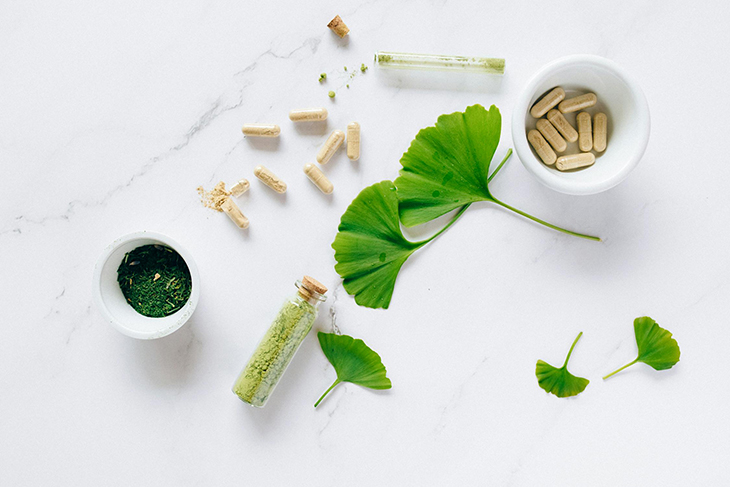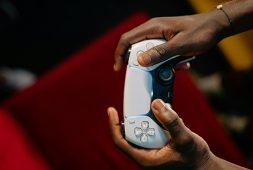Scientific Study Proves That Traditional Chinese Herb Given By IV Improves Recovery In Stroke Victims

A recent study has shed light on the potential therapeutic benefits of a traditional Chinese herbal remedy derived from one of the oldest living tree species, suggesting its efficacy in aiding the recovery of stroke victims.
The study, conducted on a large scale with randomized controlled trials, revealed that active components found in gingko biloba could contribute to the early restoration of cognitive function following a stroke induced by a blood clot.
Gingko biloba, extracted from the dried leaves and seeds of the gingko tree native to East Asia, has long been utilized in Chinese medicine for its purported antioxidant properties, believed to shield nerve cells from damage caused by oxidative stress.
Despite its prevalence in traditional remedies and sold as a nutrition supplement, ginkgo biloba remains unapproved by the U.S. Food and Drug Administration (FDA) for any medicinal purposes due to “lack of evidence.” However, findings from studies such as this may prompt a reevaluation of its medicinal potential.
The study, conducted early last year, enrolled 3,163 stroke survivors with an average age of 63 who had suffered from mild to moderate ischemic strokes. Treatment was administered over a period of 14 days, involving intravenous injections of ginkgo diterpene lactone meglumine (GDLM), a formulation comprising biologically active components of gingko biloba. Participants were then reassessed at 90 days post-treatment.
Analysis of the data revealed promising results, with participants exhibiting improved overall stroke recovery following the administration of GDLM. Furthermore, a deeper examination unveiled enhanced cognitive recovery among those treated with the herbal formulation.
Dr. Sheryl L. Chow, a professor at Western University of Health Sciences and University of California, Irvine told the American Heart Association, “I did not find the results of the study surprising at all. There have been studies looking at patients with dementia that seem to show some very modest benefits, but pertaining to acute ischemic stroke, there have also been other studies in these types of patients that have actually shown improvement in outcomes.”

Within 48 hours of experiencing a stroke, approximately half of the survivors were randomly assigned to receive daily intravenous injections of 25 mg of GDLM for a duration of 14 days, while the remaining participants received daily intravenous placebo injections.
Assessment of cognitive performance occurred prior to treatment initiation, at the end of the 14-day period, and again at the 90-day mark.
Following the 14-day treatment period, individuals who received the gingko biloba compound exhibited enhanced cognitive scores compared to their baseline assessments, surpassing those who received the placebo injections.
Moreover, by Day 90, recipients of the gingko biloba compound displayed even further improvements in cognitive function compared to their counterparts who received the placebo injections.
As reported by Associate Professor Anxin Wang, a clinical epidemiologist at the Capital Medical University in Beijing, who conducted the study, “The proportion of patients who reached a clinically significant level of improvement was 20 percent higher in the GDLM group.”
Notably, cognitive scores demonstrated marked enhancement after 14 days of treatment, with further improvements observed by Day 90, indicating sustained benefits over time.
While the immediate effects of GDLM injections were evident, the study’s lead researcher expressed interest in extending the assessment period beyond 90 days to evaluate the longer-term impact of the treatment.
Professor Wang explains, “GDLM has shown a neuro-protective effect through multiple mechanisms, such as expanding brain blood vessels and improving brain cells tolerance to hypoxia—inadequate oxygen—and increasing cerebral blood flow.”
“GDLM also has neuroprotective antioxidation, anti-inflammation and anti-apoptosis (cell death) properties. Additionally, laboratory studies have previously indicated that GDLM may promote secretion of chemicals associated with avoiding neurodegenerative diseases, such as Parkinson’s disease and Alzheimer’s disease,” adds Professor Wang.
These groundbreaking findings were presented at the American Stroke Association’s International Stroke Conference held between February 7 to 9, which highlighted the significance of this research in the field of stroke rehabilitation.
Dr. Chow, an independent expert not affiliated with the study, lauded the observed anti-platelet effects of gingko biloba were notable and “very relevant.”
Professor Wang said, “Ginkgo is believed to be a platelet activity factor receptor antagonist, meaning that it prevents the platelets from binding or sticking to each other essentially. So it does have some mechanisms that seem to promote benefits in this particular population.”
“If our positive results are confirmed in other trials, GDLM injections may someday be used to improve cognitive function for patients after ischemic stroke,” concluded Professor Wang.



